- Home
- Scott Turow
Personal injuries kc-5 Page 14
Personal injuries kc-5 Read online
Page 14
"And Brendan, you know, he's been good to these kids, like he's been to me, frankly, always looking out and concerned. Anyway, the daughter goes off to the U., with a full boat ride, and does the college-age breaking-away stuff, takes up with a boyfriend. Black kid. And not a bad kid, really. Full of himself, but hell, he's nineteen years old. Constanza was having none of it. Not just cause he's black. I think if he was black and Catholic, she maybe could handle it. But that's a two-fer with her. And the daughter, of course, she kicked and moaned originally, but eventually, you know, she loves her mom, life goes on, she adioses the black guy and meets a nice boy, Puerto Rican, which is next worst to Mom, but this one's been in the seminary, so he otherwise fills the bill. Only this black kid, Artis, he won't take no for an answer. He calls. He follows the daughter around. He won't back off. And his life is going to hell in the process. He drops out of school. He gets strung out on something. He's more and more desperate, and finally one night, he's dusted his brains out, he jumps the daughter and the P.R. boyfriend, he pistol-whips the Rican, holds the girl at gunpoint, threatens to rape her, and finally, for whatever kind of jolly this is, makes her watch while he pulls his own pud.
"Well, Constanza goes straight to Brendan. Now, Brendan, when it comes to power, Brendan gets every channel. So he's never let go of his alliances on the Force. If he gives the call, he can have thirty uniformed coppers looking for this kid. He can make sure Artis doesn't get bail, that he gets the treatment at the jail till his anal sphincter has the same consistency as Cream of Wheat. But that's not good enough. Because Brendan, I guess, personally told this kid on a couple occasions, Cut it out or else. So now it's Or Else. He gets on the phone. He calls Toots Nuccio, who was always his connect. And Brendan's Brendan, he doesn't ask for anything out loud. He just shoots the breeze with Toots, he tells Toots this story in passing, about this horrible thing that happened to his secretary, Constanza, and her family. `Can you believe this gorilla son of a bitch, what zoo'd they let him out of? It's a shame to call yourself a human being with the likes of that walking around on the same planet. I can't stand to breathe the same air.' That's all. T, h, e end for Artis. Ciao, au revoir, sayonara, bye-bye. When they found him, he had battery acid dumped on his genitals sometime before they finished him off. And it goes on the police blotter as a gang hit. `Pity what they do to each other.'
"And here's why Brendan's a genius: because he made sure everybody close to him knew the story. His fingerprints aren't anywhere on the hit, of course. But he tells the tale about poor Artis and smiles. `Makes you think there's a God in heaven.' But he was trying to make a different kind of believer.
"So Uncle Brendan, he ever finds out I set him up, it'll be the same for me, if he gets the chance. He'll have them gut me like a fish and come by to watch my heart beat its last on the pier."
As it turned out, no more than a week later, Judge Gillian Sullivan, still under relentless press criticism for her insobriety, took a ninety-day administrative leave from the bench. Officially, she was hospitalized for 'stress.' In the interval, much of her docket was reassigned. The two contrived cases Robbie'd had languishing on her call were both transferred, one to Judge Crowthers, one to Judge Barnett Skolnick. In the course of that reshuffling, the suit of the painter who'd developed cancer was also sent to Judge Skolnick from Judge Malatesta. The only explanation on the order was 'Reassigned for the convenience of the court.' Kosic, whatever his suspicions, had done just as Robbie had asked. But we did not know that, that night. What we knew was only what Robbie with his skills at impressing himself meant to convey.
These were dangerous men. Anyone who crossed them was in peril. AFTERWARDS, IN THE MERCEDES, the shadows of fright and disappointment kept them silent for quite some time as Robbie maneuvered through the dwindling traffic in the dark streets. At a stoplight, they were caught under the flickerings of a mercury lamp going bad. It reminded Evon of a question.
"'Glows in the dark'?"
"Implants," he answered, smiling wearily.
She laughed, but there was no admiration in it. She made a remark about men.
"Hey," he said, "you think the women in there are better? They're looking for rich guys and a free ride."
"It's so angry. That kind of talk."
"They're all angry. Most of them. Because they're lonely and setting themselves up to feel worse by the time the evening is through. And they know it. Every one of them. The guys. The gals. They're lonely and they're burnouts. They know they're taking what they can get. If I was gonna rename that place, I'd call it Sadder But Wiser."
"So why did you like to go?"
"You telling me you've never hung out in joints like that?"
Not like that. Not that she hadn't had her nights, her sorties to secret places. After the Olympics, after her body stopped being such a holy shrine, she'd go out to get juiced so she could see what she'd been missing. She'd been part of the good-time group getting smashed on Friday nights in agent hangs across the nation. And there were evenings of abandoned, obliviated drinking aimed really at nothing more than getting ready to have sex. But none of it lasted. For her, these evenings were at best mistakes, at worst harshly struck notes of personal shame. And she remembered none of it with Robbie's wistfulness. Far from sad, he'd ignited the minute they were through the door. When she repeated that observation, he seesawed his head, something short of a denial.
"Well, I was always chasing the Myth. Like everybody else in there. You know? The myth of love. Right? Love will make me different. Love will make me better. Love will make me dig myself."
"But it doesn't work," she said. It was the first thing she'd said for herself. Naturally, he didn't notice she wasn't speaking about him.
"At the time? Romancing, getting there? It worked. In the sack? It worked. A lot. Because I was really there. And she was really there. The whole experience is beyond bullshit, right? It's beyond everything else in my life I've fucked up. I don't have a past or a law practice or a sick wife at home. And neither does she. I can be happy. And so can she. We can make each other happy. I can be something great and good to her. And she can be that way to me. And for an hour or a night, for a while, man, we can love each other for it.
"You know, sometimes, I'd just sort of wake to it, like, Here I am, sharing this experience, intimacy, I mean close this way, all ways, to a person I didn't even know existed six hours ago, and I'd ask myself, Is this so bad? Is this really so goddamn wrong? For me, you know, I'm not one of these guys who thinks sex is the only thing in life, but it was glorious. That's all. Glory us." He spelled it. "That's how I'd think of the word."
He'd gotten caught up and looked across to her in the dark auto. There was something soft on the radio and she found herself unable to answer him. The unguarded way he spoke about himself, as if he were somebody else, open to himself and anyone within the sound of his voice, was often breathtaking.
"It's just when it was over," he said. "By the end, it didn't work. Jesus, afterwards, it was always like I could never get out of there fast enough. I don't know what it was. Embarrassed, I guess. You know, that creature need made such a big jerk out of me. Or that I'd thought she was more beautiful. But what was worst was probably just seeing how separate we were. At the end of things. She was here, with whatever it was-her classes tomorrow at cosmetology school and her dad, a copper cold-cocking himself with brandy every night, and her mom saying novenas. She had her life and our minute hadn't really changed anything. All the women-I never spent the night. Even when I was single. Even Lorraine. After we were engaged, you know, naturally. But not before. And even there, the first few times-I mean, she was like, Robbie, come on already. So I stayed. But I didn't sleep. Not a wink.
"But next year, two years from now, whenever it happens," he said, with the same unruffled knowledge of the future and himself, "give me three single-malt whiskeys on a Friday night, give me the whole scene, the jostling by the bar, the jokes, the cigarettes, the shouting over the music so loud it f
eels like big wings beating the air-give me the whole shot and I'll believe it. Big time. The Myth. I'll be right back there, spotting somebody across the room and thinking, Yeah, she's it, if I can get with her, I'll be great."
Evon had no trouble envisioning that. She could see him, with two or three Sylvias attending him, the dashing millionaire lawyer catching sight of someone else, younger, prettier, more perfect, the one who for a second could make him better than he was. A throb of what had passed through her in the bar briefly revisited and Evon looked out the window at the hulking dark buildings of the city. He'd ask that perfect young woman what numbers she liked, even or odd. She knew that much. He laughed when she predicted that, asking him what would come next.
"Everybody likes even numbers," he said. "That's how it turns out."
"So what do you say then?"
"I don't know. I'd probably tell you about me. What I like, don't like. I didn't like horror movies when I was a kid and I still don't. I bet you do, right?"
"Right."
"Sure. But I like thunder. Most people don't like thunder. Bam! I think that's a gas." He smacked his gloves together.
And then? she asked.
"I'd probably ask you what you're afraid of. You know, really scared of. That's a great one."
"And what kind of answers do you get?"
"Well, it depends how drunk you are, how honest. I've heard it all. Breast cancer. That's a very big one. Driving at night or on snow. Rape, naturally. Spiders. Rodents. Elevators. One woman-I really dug her for this-she told me that there's some little piece of her that still gets scared when she hears the toilet flush. And there's a lot of stuff people can't really name: Things that go bump in the night. The bogeyman."
"And what do you tell them you're scared of?"
"Truth? I make it up. Whatever will play. If she says breast cancer, I'll say, `Amazing, God, my old man died of breast cancer. What man gets breast cancer? Two in ten thousand. But I'm scared to death of that."'
"That's not true, though, right?"
"My old man may be alive for all I know."
"But they buy it?"
"Some. The ones who want to go with me. Either she buys it or she knows at least that I care about making her comfortable. So she's not afraid to get on to what happens next. You know?"
Evon didn't answer.
"If it's perfect," he said, "we have a good meal, and we split a bottle of some red wine so fantastic it could burn a hole in your sock. And then we drift back to her homestead or the Dulcimer, and I always ask this…" He dared for a second to look her way. "Where should I touch you first?"
She was briefly aware of the river of sensation rushing past her shoulders.
"Maybe you want me to come up softly from behind and put my palms on your hips. Maybe you like having your breasts touched in just this way. Almost not a touch. A hint. A grazing. Like a breath. So that your nipples get so hard it's a little painful in your clothing."
"Not me," she said quietly. "Don't talk about me." The words had not quite cleared her throat. She had thought when she started to speak that she was going to tell him to stop completely.
"I take my time with the clothes. I've never cared for the strip-down-and-do-it stuff, like there's a meter going in a taxi. Some people, all this buildup, and then it's, Hey, let's get it over with. I take my time. A skirt, a blouse. I like the layers. I like to say hello to each new part like it's a jewel. Hey, look at this elbow! This shoulder. Then something sudden. Maybe I slide my tongue halfway down her ear. But I want it to be right. Everybody's so different when it comes down to, you know, the little mannerisms of pleasure. Hard or slow. Touch me here but not there. I always want to know. I want both of us to be free. This one gets off by rubbing my business with her titties, and that one can't come unless my finger's up her fanny. But it's always a gift. Always. Even if it was a five-minute stand up in a phone booth, I've kept a piece of every woman I've ever made love to with me. Glory us," he concluded.
She had not said a thing. Sometimes it was amazing that life had gone on. It went on and you didn't know exactly what had happened. She didn't know now. Across the city, somewhere, a lowing truck horn boomed out. She was going to tell him to stop. For good. If he went on, she'd tell him. But he didn't.
"So what are you scared of?" he asked. She laughed, but he insisted. She didn't have to reveal any details of her forsaken identity, he said, but she couldn't simply be the interrogator. "What's your Big One?" he asked her.
She looked out the window. Near nine o'clock, a young boy who had apparently been sent down the block to the corner store waited for the light, coatless in the cold as he clutched a brown sack.
"Death," she said.
"That doesn't count. Everybody's scared of death."
"No, I mean, it's very strange. Some moments, I just know it. As if there's a record stuck in my head. `This will end. This will end. This will end.' I just see the light closing off, me disappearing. I can't even move I'm so scared." Alone. That was the worst part somehow. Fully, inalterably alone. She did not say that.
He took his time. Reflections from the road ran up the front window as the car started forward again from a light. With his serious mood, his handsomeness once more took on depth.
"And you?" she asked. "What's your Big One?"
"Me?" He shook his head.
"Come on."
"No laughing, right? That's definitely part of the deal. I never laugh. I mean, a girl once told me she was afraid that as she got older she'd get ugly feet. And she meant it. I didn't even laugh at her."
She promised, but he took another moment.
"Sometimes I wake up at night-I mean, this is ridiculous-but sometimes I wake up, it's dark, and I don't know who I am. I'm just petrified. I don't know if I can't remember because I'm so terrified or if it's the other way around. I mean, I can remember my name. If someone called me Robbie, sure, I'd answer. But I don't really feel a part of anything else. I'm just sort of floating, groping along in the dark, waiting, waiting and waiting, until it comes back to me, who I am, what I am, the center. And I'm just terrified. Does that sound too weird?"
“Uh-uh.”
"You're being nice."
"No, I'm not." She tried again for one second to call herself back, to think about what she was doing, and then once again succumbed. "Now. Doing this. Being UC. Undercover? I wake up and that's exactly how I am. `Who am I? Who am I?' As if I have to wait to be told." They were in front of her apartment.
"Frightening," he said.
"Really," she answered.
She turned to him then, but he had the good sense, whatever you'd call it, the intuition to make no move. He was going to let her come to him and in some infinitesimal fraction of time seemed to know that even now that was not what she'd choose. She endured an instant of pain so intense and familiar that it seemed almost a friend, then with a single solemn nod in his direction she left the comfort of the Mercedes and, in the harsh wind of the midwestern winter, picked her way between the ice patches on the street, returning to the place where she lived.
MARCH
CHAPTER 15
"There are dead men," said Robbie Feaver, "who are not as dumb as Barnett Skolnick. You stand before the bench, you think, God, how did this ox ever pass the bar exam? Then you realize he didn't. Knuckles, his brother, fixed it."
Knuckles, long gone now, was said to have fixed much more in his time than the bar exam. An associate of Toots Nuccio, he drew on the same wellsprings of influence, political clout enhanced by substantial mob ties. His nickname referred to his right hand, misshapen as the result of an infamous racial brawl at Trappers Field in the 1940s. He had been a downtown party committeeman, and the proprietor of a vast insurance agency that enjoyed uncanny success in underwriting municipal agencies.
"As the story goes," Robbie told us, "Knuckles had to put Barney on the bench because he was too dim to practice. The guy can't zip his fly without an instruction book. These days, at least, he looks
like a judge. Beautiful head of white hair. But he just sort of sits there with this sweet, terrified expression. `Gosh, I like you all, please don't ask me any hard questions.' Rules of evidence? This schmo's been on the bench twenty-six years and he couldn't guess what hearsay is if you gave him multiple-choice. God only knows what Brendan owed Knuckles. Skolnick's been here since Brendan became Presiding Judge."
It was late afternoon. The sun was dying with style, looking, in its descent, as if it might burn a hole in the river. We sat with pretzels and soft drinks in the conference room while Robbie went on. By now all of the UCAs would make it a point to crowd into the room for Robbie's debriefings, extended adventures, as they were, in the oral tradition. With his shirtsleeves rolled and his hands flowing through the air, Robbie worked his audience with care, aiming some gesture of connection-a deft smile, a decisive nod-at every person. Watching, I often thought about how magical he must have been before a jury.
"For all of it, it's still hard to hate Barney. I know you'll never believe this, Stan, but he's a sweet guy. Doesn't want to hurt a soul. Honest to God, he takes the money because his big brother told him to. They even tell a story about Skolnick, Lord knows if it's true, but it's a great tale. About twenty years ago, he's sitting in Divorce, not long after he first came on the bench. I can't remember who the lawyers were, two of the gods over there, guys who can talk to the judges. Well, apparently Skolnick's getting ready to start trial, and all the sudden he calls the attorneys back into chambers, just them, and he gets the two into the far corner and in this iddy-biddy little voice he says, `Just so you know, the dough is even, so I gotta decide this straight."'
According to Robbie, Skolnick had been bagged for several years by his court reporter, a Hasidic Jew by the name of Pincus Lebovic. Blue-eyed and foxy-looking behind the dense brown growth of his beard and pais, Pincus in his dark, outdated suits presided over the courtroom in a style bordering on tyrannical. He was cold-blooded and peremptory. It was even said that, on occasion, Pincus would halt proceedings, purportedly to change the paper in his stenographic machine, but actually to take the judge back to chambers to give him directions or, even, a scolding. The recognized brains of the team, Pincus handled all arrangements with the lawyers who `talked' to the judge.

 Testimony
Testimony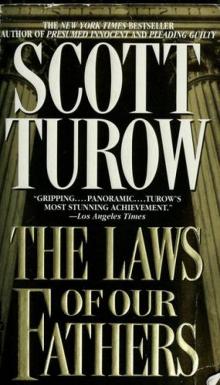 The Laws of Our Fathers
The Laws of Our Fathers Ordinary Heroes
Ordinary Heroes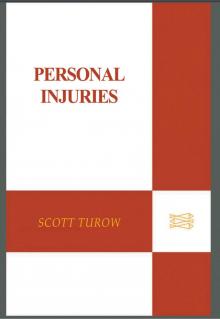 Personal Injuries
Personal Injuries Limitations
Limitations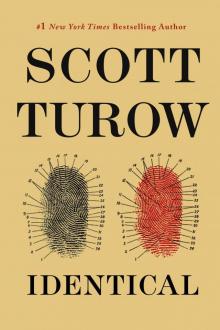 Identical
Identical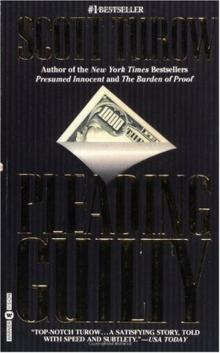 Pleading Guilty
Pleading Guilty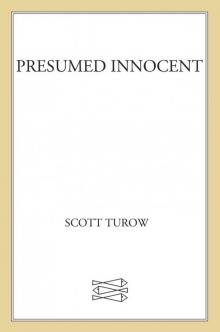 Presumed Innocent
Presumed Innocent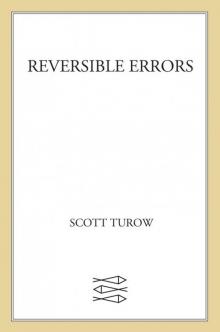 Reversible Errors
Reversible Errors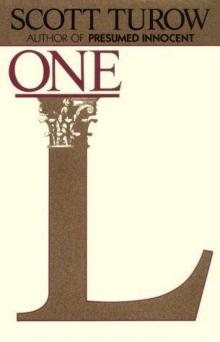 One L: The Turbulent True Story of a First Year at Harvard Law School
One L: The Turbulent True Story of a First Year at Harvard Law School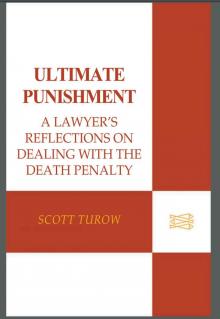 Ultimate Punishment
Ultimate Punishment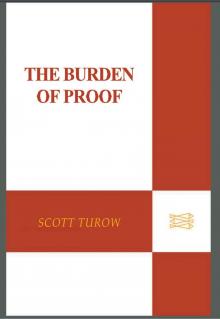 The Burden of Proof
The Burden of Proof Ordinary Heroes (2005)
Ordinary Heroes (2005)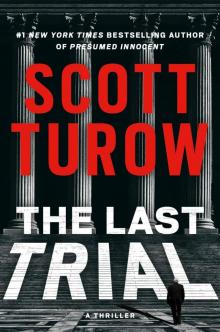 The Last Trial
The Last Trial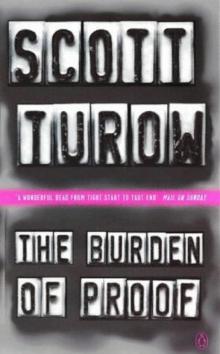 The Burden of Proof kc-2
The Burden of Proof kc-2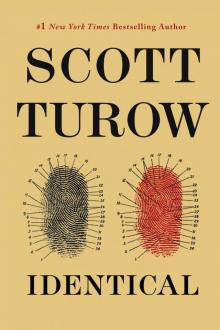 KC09 - Identical
KC09 - Identical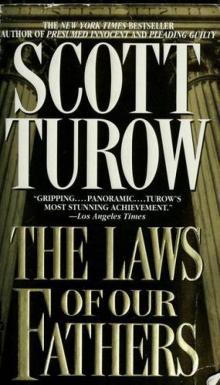 The Laws of our Fathers kc-4
The Laws of our Fathers kc-4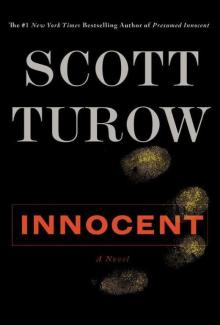 Innocent kc-8
Innocent kc-8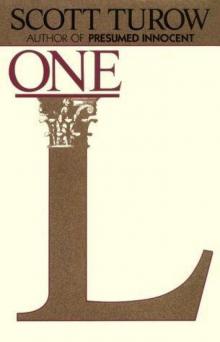 One L
One L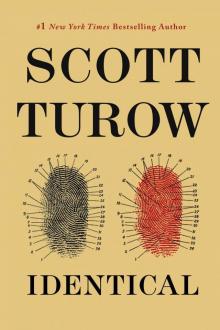 Identical kc-9
Identical kc-9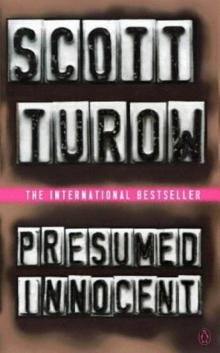 Presumed innocent kc-1
Presumed innocent kc-1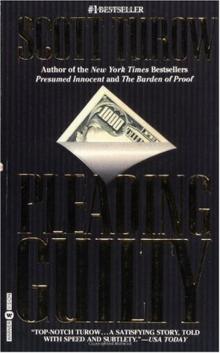 Pleading Guilty kc-3
Pleading Guilty kc-3 One L (1977)
One L (1977)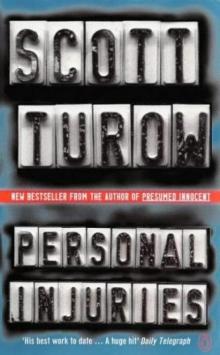 Personal injuries kc-5
Personal injuries kc-5